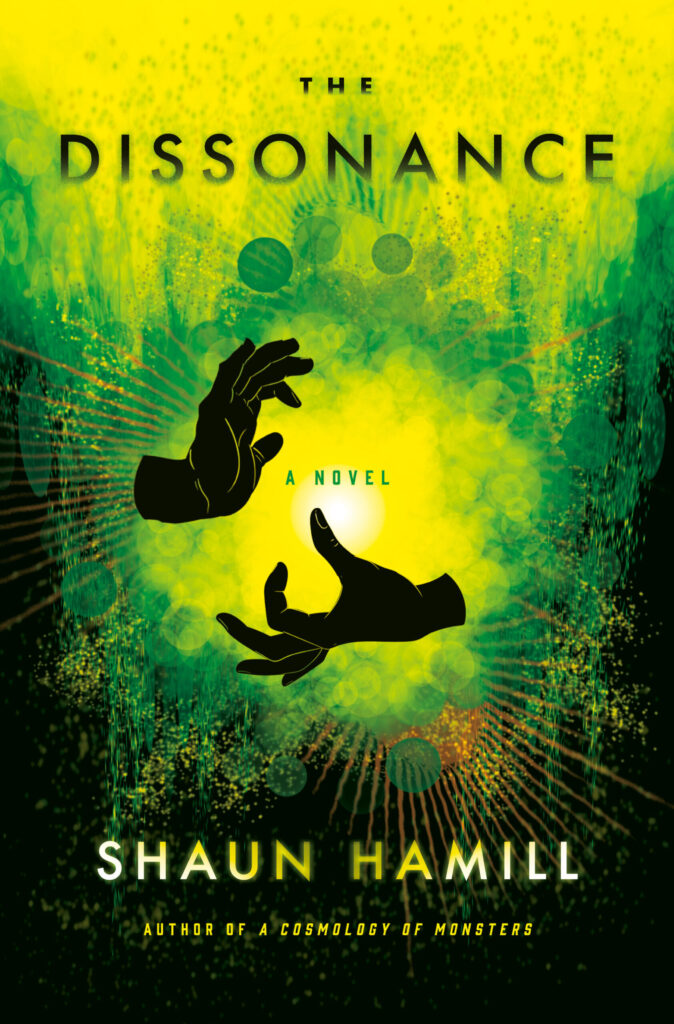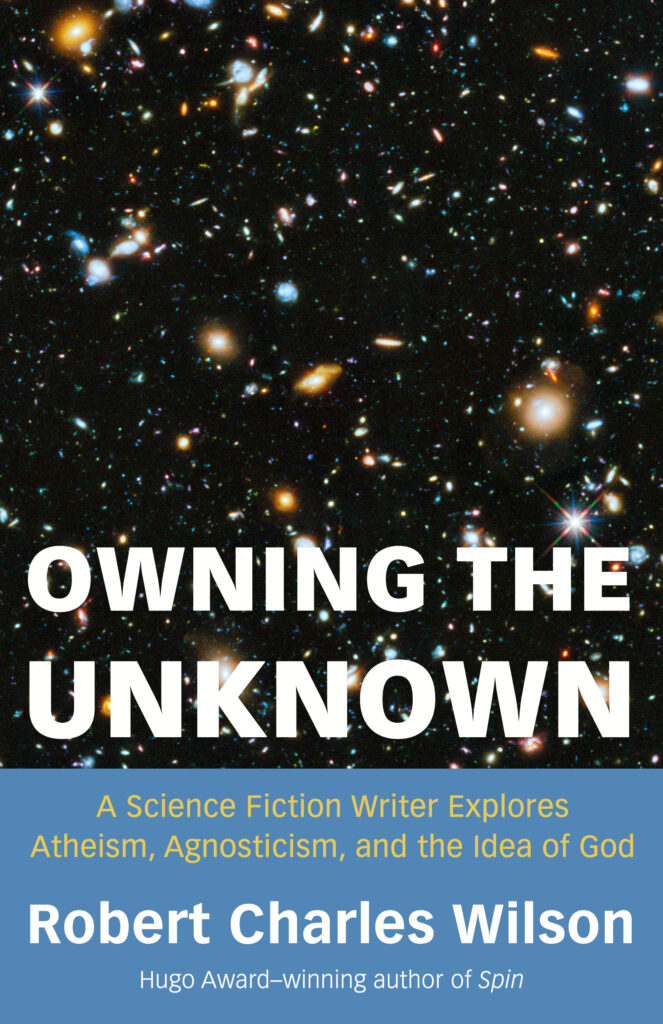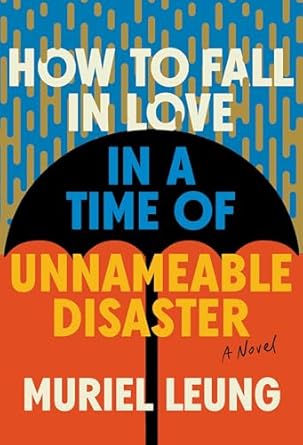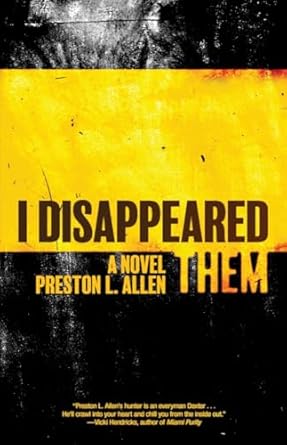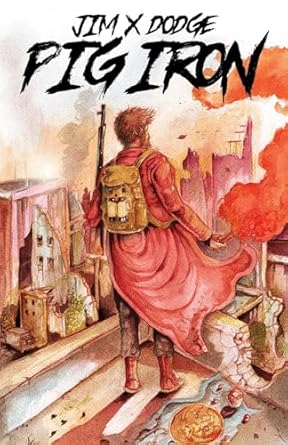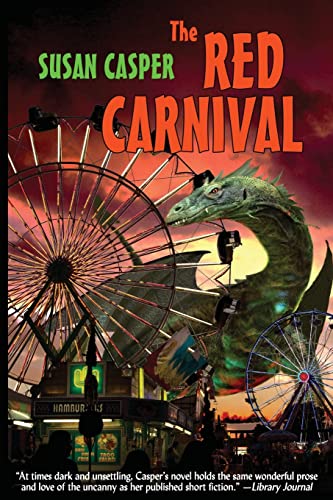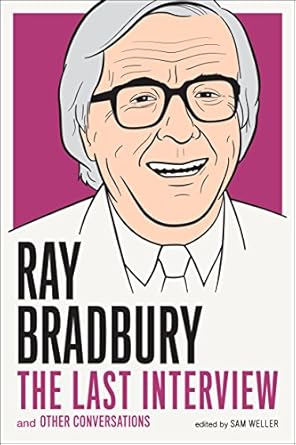Issue #115: WE’LL GATHER AT RUAPEHU
Editor’s note: True Review 114 published Part 1 of my two-part “Star Trek: Next Generation” novel, “We’ll Gather at Ruapehu.” Here is Part 2:
Chapter 13 Reboot
Residual transporter signature. Self-transporting technology. Capture interstices. Power source? Enough data to determine buffer assimilation and transmission requirements.
Gradually Data’s own diagnostic and reboot algorithms embedded deep in his positronic system assimilated and processed the information about the Intruder. Starfleet recognizes no such entity as “Honore.” Curious, Data processed at a lightning speed, no sense of urgency, no sense of danger, from a so-called custodial life form such as the Intruder.
“Data, are you all right?” Geordi stood over him, along with Lieutenant Reginald Endicott Barclay III.
Barclay held the tricorder and a data assimilation scanner near to his head. “Minor positronic emitter damage, and nanobots are underway. Curious: portions of memory patterns over the past 15 minutes have been ‘re-arranged,’” said Barclay.
Data sat up, “Lieutenant, I am infused with self-regaining parameters created by my founder. I am able to make all necessary repairs.” Data looked around, “What is my current location, Geordi?”
“Exact location?” Geordi said. “Why?”
“I need to understand so I can perform additional processing,” he said.
Geordi glanced at his tricorder and answered, “Ringworld coordinates
2568-3-Cigna Z, 2 degrees rotational into the Zeta T construct, 20.2 meters from the construct entrance. Why?”
“Excellent. Further processing,” Data looked around, and a smile appeared on his face. “I understand how the Intruder can transport so readily. He has a cloaked spacecraft at 2566 Epsilon-M, approximately 250,000 meters from the edge of the ring.”
Data, Lt. Barclay, and Geordi examined the engineering console as Data fed the information into the processor.
“Allow me to understand this, Data,” said Barclay, moving to another console. “He is able to self-transport from directed energy on the ringworld surface. But the launching mechanism is coming from a cloaked
ship? Starfleet is able to detect cloaking mechanisms now from almost any location within five light years of a Starship. How through all this time was this ship undetected?”
“Hawking radiation, my friend,” said Geordi. “He can generate his own hawking radiation signature! And his ship was masked by the gravitonic distress from the renegade neutron star.”
Barclay said, “So who, or what, is the Intruder?”
Data disconnected the scanning devices. “He goes by the name ‘Honore’ and is a cybernetic mechanism, some type of maintenance protocol droid, probably created by the ringworld engineers. Honore assures me the ringworld inhabitants are not in danger. But he has provided no
explanation. We need more answers, Lieutenant. I believe there is a way.”
Geordi turned his visor toward Data. “He’s a janitor?”
Data appeared confused by the name.
Barclay said, “Yes, Data, a reference to a building upkeep manager.”
Geordi said, “I am afraid if you run into this janitor again, he may destroy you, my friend.”
“No, not necessarily,” Data activated a holoprojector. “Along with self- programmed autotransport, he has a level 2 auto-initiated personal shield, which he used to disable me. I have recorded its frequency and it can be overridden. My creator has installed stealth mechanisms that can record such data – mechanisms not detected by its probe. I believe I can
follow him, undetected, and see what his plans are, and be able to react to them in time.”
Barclay said, “In time. Time for what?”
Data said, “His plans don’t seem immediately dangerous to the ringworld inhabitants, because otherwise he could have easily jeopardized the safety of the ringworld. He could have easily destroyed me, Lieutenant.”
“Data,” said Barclay, “perhaps he views you as one of his own, part of his kind?”
LaForge said, “Yeah, I get it, Data. Perhaps you are serving some purpose – or is trying to communicate what his plans are, but doesn’t know how. Or can’t,” said Geordi.
Barclay smiled, “Or is restricted from some type of ringworld engineer protocol. Or he doesn’t know what he needs to do, if he is here to help save the Ringworld. The Ponce De Leon plans were not in the Founders framework. Or . . . he is simply making up plans as he goes along. You know, like the main character from my favorite childhood film, ‘Indiana Jones and Raiders of the Lost Ark.’”
Data processed the information. “Yes, a film, circa Old Earth 1981, starring an actor by the name of Harrison Ford, who played the title character. I believe the title character would use that saying often, or in his words, “I’m making it up as I go along.’”
***
Chapter 14 Quick Transport
Data noticed the displacement near a Zeta-C prudence plant field and transported to it.
“Robot,” the Intruder/Honore quickly ran to Data. There was disgust and impatience in his voice. “You must simply cease and desist from interfering with my work.”
Data quickly set up the quantum containment field and stepped back. “We will need you for questioning.
Why did you sabotage the Ponce de Leon?”
Intruder/Honore stepped against the force field and was thrown back, visibly injured. Data stepped closer to the field. Intruder/Honore said, “Robot, if you value your life, lower this containment!”
“Honore, I will not comply. At least not until Starfleet has the answers, which is why, unfortunately, you have been detained,” Data said.
Data was continuing scans on Intruder/Honore, wondering if there was some way the prisoner could break free. He thought there was not. Intruder/Honore said, “I am on a mission from the founders, the engineers. My mission details cannot be provided to your Starfleet Command, unfortunately.”
Data said, “Does it have something to do with proverbs? Do the ringworld inhabitants believe you to be a . . . prophet? Or something more?”
Quietly, slowly, Intruder/Honore stepped up closely to Data. “You are observant, Machine-Man. Very interesting. Do you believe in the natural order, sentient Robot?”
“Order? Do you mean the social workings of this static ring?” said Data.
“I mean order, Robot. I mean keeping the sanctity of the ringworld beliefs. The people of this ringworld have faith in the Founders. That faith, and belief, must be maintained, must be enhanced, by what I must do.”
“And what is that?” said Data.
Neither of them saw Kesha enter.
She watched as Intruder/Honore reached through the force field and Data flinched away, thrown back by the explosion, which rocked the area, throwing her forcefully to the ground. She writhed and screamed as Intruder/Honore vanished.
***
Chapter 15 Honore’s Mission
“Scanalysis complete,” the ringworld leader Uhura heard from the companion.
“Ring Custodian Honore,” came the voice that sounded just like the Muslim leader.
Honore appeared before the Eminence.
“What brings you here, Honore?”
It was not in the custodian’s nature to lie, but the Founder programming left him no alternative. “Plans for the rerouting of the star anomaly had worked in the past, a simple adjustment,” said the custodian.
He grimaced when he lied, “Our efforts are being thwarted from the unlikely Federation visitors.”
“What? What kind of peddling misery is Picard enacting on us now?” said Uhura. His hands were normally raised up in supplication and adoration. Now, it was frustration from unwelcome guests.
The custodian refrained from additional lies. “Centuries-long graviton effects have unfortunately, and for reasons unknown to the Founder programming, allowed it to turn and directly head to an inevitable encounter with ground we stand on.”
“Are you saying Starfleet is correct?”
“Yes, your Eminence,” said the custodian, looking down.
The ringworld leader worked on a panel, asking it to prepare for the worst in case an evacuation was called for.
“We are using the captured weapon and I have come up with a plan to utilize its energy to destroy the neutron star, once and for all,” said the Custodian.
It seemed an extraordinary long time, but his Eminence came up to the Custodian Honore and grasped him by the neck. “Will it work, Honore? Because I am in a difficult position. Leave, and I have lost my ability to lead them. If I stay, and I am wrong, we may all be dead.”
The robot nodded and disappeared.
***
Chapter 16
Uhura and the Consulate
Captain’s Log, Stardate 48447.3. All the ringworld inhabitants realize time is precious with the approach of the destructive neutron star, as
transmissions from noncommissioned Starfleet and deep-space vessels have brought the news of the impending arrival of the anomaly. The ringworld is in an uproar, with violence breaking out in most sectors. Small vessels have already exited the planetoid. I have sent security teams to assist the rioters and have brought additional security with me to attend to Alhamisi Uhura and
Benefactor Ali Onyango’s needs. And to convince them to leave.
Even though the amplifies carried his voice everywhere, Alhamisi Uhura was shouting at the top of his lungs as the crowds surrounded him, in anger, a feel of impending violence. “We have always had peaceful gatherings with the consulate, and I
will not tolerate this demonstration! Allah the peaceful! Allah the merciful! We are a nonviolent civilization!”
Picard heard the voice of Alhamisi Uhura echoing through the chamber. Throngs of representatives from more species than he had ever seen before, including one from Species 8472, waited in the wings. One lone representative stood at a community broadcast booth.
“Your Eminence,” said one large Puppeteer, apparently a female. “While we believe in the words of our prophets, none of them had foreseen the arrival of a missile sent by Allah to destroy us.”
The chamber erupted and many of the species were banging on the protective shielding around the chamber. The chamber lights
wavered. Security motioned to Picard to draw phasers but Picard was motioning for the security team to stand back.
“If we go on like this, we’ll be our own destruction, Jamala,” said Uhura. “This was foreseen. ‘From the sky will come a danger, thwarted by our guardian, Honore.’ Honore has been sent. I have spoken with him.”
Uhura could sense a collective sigh from the crowd, then a calmness. Then it was extraordinarily silent.
Picard whispered to his security chief, the Klingon Worf, “He’s not the only one to talk to this Intruder. The Intruder is an entity, a maintenance machine, similar to our own Data. And Data needs to deliver some answers.”
“Honore has a way to protect us, deliver us … enhance us,” said Eminence Uhura. “We can become so much more than we are, so much more than residents of an artificially created static ring.”
Another resident, an Aurelian, stepped up. “Your Eminence, what protection do we have? Can we trust Starfleet? Can you give us your word that we can and will be protected?”
“Yes, Le Merrit,” said Uhura, sighing. “My belief is strong. We have been assured of protection. The walls will not fail. Your homes will be protected. Honore has a plan that all founders have put in place long before we were born.”
Picard thought, New Orleans. The devastating hurricane. The levees will hold. Army Corps of Engineers assurances. The conversation with
Guinan came to mind with Picard.
Promises made. Promises broken.
***
Alhamisi Uhura sat on his halkai chair, staring at the frozen hologram of Nyota as a child. My freedom star, he thought with delight.
Just then the very air vibrated violently around him and a wind picked up, forcing the door mechanisms to the chamber to operate. Open. Closed.
The Intruder appeared before him. “Your Eminence,” the entity bowed.
“What are your plans now, Honore?” said the ringworld leader. For a second, Uhura looked downward, turning the photo of Nyota on its face to the table.
“With the help of the Starfleet device,” he said. Briskly, Honore walked close to him, and bowed again. “I shall not fail you. The Founders shall not fail you.”
“So it is written,” mumbled Alhamisi Uhura. “So it shall be done.”
***
Chapter 17 Lost
Captain’s Log, Stardate 48447.4 While on a mission to isolate the source of energy buildup near the
Suryadd region of the static ring, Lt. Data’s transport signal was lost. The Enterprise is attempting to triangulate the exact known location of Mr. Data.
Kesha waved a triflower under Data’s nose.
Data opened his eyes and, briefly, backed away from the Puppeteer. He looked very surprised.
“Robot, are you feeling all right?” the Puppeteer said.
Data moved from side to side, and stood up. He looked at her and said, “I am all right. Why did you call me . . . . Robot? Is that my name? And who are you?”
“Silly,” she said, skipping to the side. “Kesha. You must have struck your head or something.”
“Kesha. I don’t know if we have met. I am—“ for a second, Data was confused. “My head.” Data felt his cortex. “I have trouble recalling some things.” He looked around. “Where are we? Is this a planet? And where were we going?”
Kesha dropped the triflower and held onto him. “I am not certain. In one instant we were . . . someplace . . . and now . . . here.”
“How did we come to being . . . here?” Data said.
“I don’t know. I miss my home. But,” she looked around, and recognized neither the vast amount of trees that seemed to tower for miles. “It’s not here.”
In the panels at night, the inhabitants used telescoping mechanisms and saw the dark, shadowy figure of the neutron star. Briefly, they glanced at a brilliant twinkling, and then it was gone. The shadowy and billowing figure remained.
***
Honore looked at his readout aboard his cloaked ship. The neutron star was not destroyed and the path remained unaltered. That demonic thing, Honore thought. He sighed and placed his head against the readouts. A small alarm sounded in the panel and he ignored it. He had failed to protect the ringworld. He had failed.
He destroyed the robot’s imprint, hurtling him from home. What can the humanoids show me? He wondered. What would they know about averting a disaster?
He had failed the Founders. He was a defective maintenance device. Useless. What was the flawed custodian unit to do now?
***
“Your name is Kesha. Kesha, this much I know,” said Data as he walked with the Puppeteer out of the forest. “Something tells me we are not far from someone who can explain how we are so far from your home. And mine.”
Kesha looked puzzled and placed herself in front of the android. “Your home? I am aware you are from Offworld. Not Ground We Live On.”
Data stopped and sat on a confused pile of wood. “I am suffering some sort of memory loss. Offworld? You mean, not here.”
“Not of this ring,” she said.
“Ring? I don’t understand.” Data held his cortex and closed his eyes. “I am trying to figure out a lot of things. Kesha, what do you remember last?”
“We were . . . you were . . . checking one of our panels to determine a source of energy.”
“For what purpose?” Data said.
“I am not sure. You seek the Founder, I think,” she said, almost in a whisper.
“The Founder? What is a Founder?” Data said.
Kesha reached up and touched him. “You must be damaged, Robot.”
He said, “Why do you call me that? A robot? I am a machine?” Data observed his hands. “I feel . . . fine. Much like a human. I am feeling . . . my systems are working in appropriate . . . except for having no concept of what I am or how I got here.”
“You are not from here, Robot,” Kesha said. “You are from up there, somewhere,” she said, pointing to the sky, with the sun obscured by panels though stars were visible. “In space. You call it the Federation. I
have never heard of that before. As I said, someplace Offworld.”
“Space,” said Data. “Why did I come here? To study power sources?”
Kesha shook her long, stemmed neck. “Oh, I don’t know. But the organization you represent, you call Starfleet, has come to take us from this place,” she said, walking toward a tree cut down in its prime. “You fear Ground We Live On will be destroyed, which the Founders ensured would never be. I believe you are sincere and are trying to help us. Unfortunately, we don’t know whom, or what, to believe.”
Kesha was silent and used her hooves to kick around a small stone.
“But I have these visions,” said the Puppeteer, “these strings and they worry me a great deal. I see death
and destruction. I am frightened by these visions.”
Data stood up and kneeled down in front to talk to her, face to face. “This world: is it in danger?”
Kesha placed her right forelimb on her should. “I know this. I don’t think your Federation, your off- world, is responsible. I have seen you in my strings. You have fought a Founder. And now, I know you have lost.”
Data squinted at her. “Kesha, maybe there is still fight in me. But I must get my . . . bearings. I must find what my purpose on your world is. I must also bring you back home, I believe. If only I can figure out how we arrived here.”
***
Chapter 18 Survivor’s Journal
In the days before the end, there was disarray.
Kesha was holding her keeper’s hand, or what was left of it. Her guardian and teacher Benefactor Ali Onyango stared at the prudence plant.
“Benefactor, how can we be on the ringworld, and yet not on it?” she asked.
There was a hint of pain in his eyes. She remembered the Machine-Man and his look, similar to Benefactor Ali Onyango. A look of puzzlement and yet a look of acceptance.
She remembered the storms, the wind, many dying, many still living as the Federation rescued as many as they could from the hell brought by the invading force, the neutron star.
“Are you a Founder?” she asked.
“I. . .” the robot, Data, paused as he held her, bleeding, from the detritus of the storm, being thrown in all directions, as he held her closely, protecting her from the onslaught as he moved her to transporter range.
“No, I am not. I am . . . merely a robot.”
“No,” she shouted above the terrifying, screaming winds. “No, you are an android.”
Benefactor Ali Onyango brought Kesha back from her reverie. “We must record this carefully, Kesha, for our future generations on the new world.”
Kesha could understand little of the meaning of a “holodeck program” that brought the Ground We Live On back to life, at least for a short time, anyway. Her friends were gone. All that she knew from Ground We Live On was gone. All except Benefactor Ali Onyango.
“We need to keep this record, Kesha,” said the benefactor. “Your String. It’s all we have.”
***
Chapter 19 Saving Grace
Lt. Barclay sighed as his work with the computer on the holodeck was slowly taxing his concentration. He hadn’t slept in two, perhaps three shifts; the work was a strain on his
mind and body. The destructive graviton tides would soon be affecting the ringworld. Very little time left to speculate on an answer that was perplexing him: how can we safety beam and store a trillion inhabitants of the ringworld, encompassing thousands of species, with limited power and even more limited storage resources?
“I think, therefore I am,” he told the computer, quietly.
The computer’s strident voice erupted from all around him. “Please restate your question. Insufficient parameters to your inquiry for a meaningful response.”
“Computer, relay all program parameters of Stardate 46424.1, Sherlock Holmes sequence and the Moriarity mirror program.”
Immediately the titanium-structured and carbonite-lined holodeck was transformed into a mid-19th century London setting.
A frozen figure of the character Moriarity looked about to speak to Barclay, but it was a replica of a program. The real program was locked in gravitite. For good reasons, since the Moriarity character came close to taking control of the Enterprise.
“What is your secret to self- replication, you sociopath?” said Barclay to the image.
There was no response.
Barclay said, “I don’t want to remove you from the bottle. You’re liable to talk your way into confiscating a phaser and kill us all . . . in a
monstrously efficient planned second or two.”
Moriarity spoke, briefly: “And to whom do I owe the pleasure of my company?”
Barclay didn’t expect a that kind of response from the frozen figure of Moriarity.
“Oh, so graceful, you are. That’s what it is, isn’t it?” Barclay said to the frozen character. “A cascading memory allotment. Molecule compression, quantum reduction, a paroxysm of condensed memory, temporal zone information protocol. Compression. Like we compressed you. Put you in a bottle. Bubbles in a bottle. Room. Defracture the bottle, room. Bottle. Room.”
Barclay winced, pointed to the image, and nodded. “But does it matter? You could be in a bottle, you could be in a broom handle . . .”
Barclay shook his fist high in the air, filled with excitement. He had an answer. “No, it doesn’t matter! Broom, bottle, deckplate . . . Captain, I have it! Data, I know what we can do to save the species on this static ring!”
He took one look at the motion-filled image of Moriarity, who never appeared more puzzled. “Your utterings are gibberish to me, whomever you are,” he said.
“You capricious maligned putz, you did some good. Not a worthless criminal after all. I’ll keep you running just a day or two. . . as, well, my thanks. Oh, and stay out of trouble, O.K.?”
Barclay left the notorious program running on the holodeck.
***
Chapter 20 Out of the Past
Captain’s log, Stardate 48447.5. After a brief discussion with Lt. Reginald Barclay, the Enterprise officer believes he has a plan in which to rescue the ringworld inhabitants . . . with a little help from a villain in Starfleet’s holodeck history.
“Remember Moriarity, and Regina, and where we left them, Captain?” said Barclay.
Officers were assembled in the briefing room. “Oh yes,” said Picard, smiling. “The Countess Regina Bartholomew and the criminal mind, Moriarity, who was desperate to leave the holodeck to enter human space. An impossibility. He is a dangerous being, even if he is computer-generated. If I remember correctly, we devised an answer that kept both characters ‘locked,’ as it were, in a simulation . . .
indefinitely. Lieutenant,” Picard leaned forward, “what in Starfleet’s universe do holodeck characters have to do with transporting the inhabitants from a static ring?”
“I placed them in a bottle . . . sort of,” said Barclay. “Captain, it’s all about extended memory. But I was careful where I placed them. I used a bottle as a metaphoric algorithm. We didn’t have to be that careful.”
LaForge spoke up, “Yes. Any memory medium would have sufficed. Sufficiently reduced, I can see almost any material could be a medium. You would have to understand the quantum effects. I see where you are going. But can we properly select any material?”
Barclay said, “LaForge . . . Geordi . . . I can lock your beam-out configuration into my tiny
communicator,” said Barclay, removing it and throwing it toward the table, where is spun several times and stopped. “And retrieve your molecules, intact.”
“How? The energy requirements . . . the quantum placement . . . the buffer parameters need to be highly specific.”
“Not in a manufactured quantum- status field,” Barclay said.
Gordi picked up the communicator. “The arrangement of an infinite number of molecules has been done before, but some of my colleagues on Starbase 10 were looking into a positronic-type system for that very effect. Mass beam-out. Tens, perhaps hundreds of lives captured, retained and then released.”
“Exactly, Lieutenant,” Barclay said. “I have had conversations with Dr. Asimov on that singular topic.”
“Dr. Asimov?” replied Beverly Crusher, shaking her head in bewilderment.
Barclay seemed nervous, but said, “It’s a long story, Doctor, but the originator of the first – fictional — positronic brain is quite a conversationalist, if you can just get by his . . . untoward limericks.”
LaForge paused brought right finger to his visor. “To achieve mass transport, on the order of thousands of lives, it would take enormous energy. We would sacrifice many joules of energy to get what we need.”
“And we have them,” said Barclay. “We have the ability to take the
energies of the United Star Ship Yosemite, docked nearby, and its entire memory core, all units of energy, along with the Enterprise.”
“And tow us to safety, by the stars,” said Picard. “A damned good plan, Lieutenant. If you think it is possible. It’s a damn sight better than seeing millions perish on the ring. Let’s hope the buffering technologies on BOTH ships work. I will not lose a single soul, despite their damning beliefs that some spiritual being will come just in time, like some sort of cavalry, to their rescue.”
Riker said, “This time, apparently, we’re the cavalry.”
***
Chapter 21
Help from the Good Doctor
Barclay hadn’t seen anything like it before, at least what he could remember. Piles of old sewn-together “signatures” of paper glued and sown together with crude string.
He was watching the author lift up the old original “hardback” copies of long-ago published books. The gentleman appeared nonchalant of how the writer looked: sort of frumpy, wearing an old smoking jacket with elbow patches, as the
cantankerous and disheveled author and scientist sighed as he paged through the book.
“Look at this, Mr. Barclay,” said the Good Doctor. The “Good Doctor” was the affectionate title applied to one of the founding fathers of a mid-20th century literature, affectionately called science fiction.
“Gilbert and Sullivan,” Asimov said. “My only copy, 1958. Rare, my friend. THE FIRST NIGHT. Jehoshaphat, look at the spine,” Asimov held the copy in front of him, squinting, looking as if he was ready to cry. “Ruined. What did they do, open it and read it like a newspaper, folding it in half?”
Asimov dropped the book onto the tabletop.
“I got this from my friend Ben Bova,” Asimov said. “Rather than sell it, I suppose. Who knows what the collectors would do with it?”
Asimov walked to the end of the huckster table as convention-goers walked around him. After they left, it was just him and the Starfleet officer in a room that seemed too big, too cavernous.
“Look, Reggie, I’m fairly busy. But you mentioned you had a copy of CAVES OF STEEL you wanted signed? Who sent you here? Bova? Del Rey? I haven’t seen Judy in some time. Any idea how she is doing these days?”
Reggie looked perplexed. “Actually, I am a physics student at Columbia and I had a question or two about your . . . positronic technology.”
“Clever, wasn’t it?” Asimov sat down on a wooden and rickety old arm chair with forest green vinyl arms.
“A plot device to advance the notion that robots can be more like us. More than we can imagine.”
“I have a bigger proposition for you,” said Barclay, as he stood next to the Good Doctor. “Computer, use program Barclay Up Top, Sequence 47, Alpha Insert.”
The early Earth home office of Dr. Isaac Asimov morphed into the sickbay of the 24th Century U.S.S. Enterprise.
Barclay tapped his communicator. “Lt. Data, please report to holodeck 8. I will need your assistance on the quantum storage proposal.”
“Yes, Lieutenant,” came the android’s voice.
“What in Jehovah’s name just happened?” said Asimov, circling around the room, as if he was ready to run off. “What is this place? Sleight of hand? Did you knock me out? Am I being kidnapped?”
“In good time, Dr. Asimov,” Reggie was trying to hold down his stammer. “And I apologize . . . for this inconvenience.”
The Sick Bay door opened and Data walked in.
“I see,” said Data. It took him some time to process the image of an old Earth author. “A simulation of Dr. Isaac Asimov. Interesting.”
“This here,” said Reggie, nudging Dr. Asimov in Data’s direction. “Is our best android . . . I mean robot. Data, could you be kind enough to sit
here?” he said, holding data’s arm and turning him around. “I will open the positronic access panel.”
He did so. Dr. Asimov turned a few more shades of white, then stumbled to face Data and look at the glowing panel. Asimov looked over the top of his glasses.
“That’s very interesting,” said Asimov, dramatically. “Actually, astonishing. Look at you, R. Daneel! Look at YOU!”
Data lowered his eyes and then looked at him. “Whom do you refer? Do I remind you — oh, yes. I understand. The robot – R. – Daneel Olivaw, constructed by Roj Nemennuh Sarton and Han Fastolfe, Spacer roboticists from Aurora. Fictional creations by Doctor . . . well, by you, sir.” Data smiled, “There was a young lady from
Chichester, whose beauty made saints in their niches stir . . .”
“A limerick!” Asimov said. “It has been some time since anybody recited one to me. But look at you, R. Daneel! Mr. Barclay, I don’t know how you did it, how you transported me to the 51st century—“
“Uh, not quite that far, actually,”
th said Barclay. “It’s the 24 .”
“You have R. Daneel in only the 24th?” Asimov withdrew some paper and pen from his dark-tan corduroy jacket pocket. “This is something I must write down. Oh how did I miss his development by 26 centuries?”
Data closed the data port and stood up. “Dr. Asimov, it is an honor to meet you. Unfortunately, I am not R. Daneel. My name is Data.”
“That’s a strange but interesting uniform for a robot,” said Asimov, writing a note.
“I am not a robot, Dr. Asimov. I am an android officer on board the Starship Enterprise.”
Asimov sighed. “Starship? A generational ship, like Bob Heinlein used in ‘Universe’?”
Data turned aside. “Heinlein. ‘Universe.’ Processing. Oh, your reference to another fictional creation of author Robert Heinlein. A story by the name of ‘Universe’ first appeared in the May 1941 edition of Astounding Science Fiction, a printed pulp-paper magazine. No, Dr. Asimov, if you are referring to the Enterprise, it is not a generational ship. This is a commissioned starship of the United Federation of Planets.”
Asimov walked around the artificial intelligence. “Android? My dear R. Data, no, you have that wrong. Android would assume you have very human DNA components.”
Dr. Asimov touched the skin on Data’s left hand. “Well, indeed you do. Can you eat? If so, how do you process food? How do you handle waste—“
“Dr. Asimov,” Barclay said. “We don’t have a lot of time, and we need your answers to some research you accomplished long ago. I am actually looking for one thing.” Barclay went to a control communication panel and activated a holographic program.
Asimov stood back, astonishment on his face. “Holography. It certainly feels good to be transported up a few centuries.” Asimov opened up the
left pocket of his faded jacket and brought out another piece of paper, and wrote on it. “I believe its initial radius was a maximum of about 20 centimeters. But this is fairly large.”
Asimov stood silent for a time, then said to Data, “Are the 3 Laws of Robotics firmly established in your system?”
Data answered, “I operate on sophisticated ethical programs constructed within the framework of those laws. Apparently my creator, Dr. Noonian Soong, was able to produce a stable positronic net. I was quite fortunate.”
“But look at you, look at you! Jehoshaphat! I’ll bet your positronic processing power has you in one helluva tizzy.” Asimov said, smiling widely. “What you could accomplish, what you could achieve . . .”
Data said, “A tizzy? No, I have no emotional reaction to my programming. Tizzy? Processing. A tizzy means a nervous, excited, or distracted state. Understood: a tizzy.”
“Mr. Data, Dr. Asimov,” Barclay said, holding down a sigh of frustration, temporarily stopping a gridded map sequence of Data’s positronic output. “We need to sustain huge amounts of data, parsing them and keeping molecular transference unique and intact. The neural computing architectural network needs to be 20 times denser than a typical positronic synapse. What would we use to achieve that factor?”
“Iridium and platinum?” Asimov said. “Would they be useful?”
“Lieutenant,” Data said. “Would it be possible to use a quark?”
Asimov thought for a moment, “I have heard of ‘memristors’ as some type of analog synapses.”
Barclay shook his fist and said, “Brilliant! You too, Data, Dr. Asimov. The top quark, with a mass of 172 GeV/c^2. How do we harness it?”
“Crashing quantum waveforms,” said Asimov, staring into the distance. “I’ve read about that. Substitute dense anomalies. I believe I read about that in Popular Science Magazine. What in Jehoshaphat do you need that for?”
“We are under pressure to evacuate millions of beings from an approaching renegade neutron star,” said Data. “Dr. Asimov, your assistance is greatly appreciated.”
“Renegade what?” Before Asimov realized what was happening, the holodeck transformed back into the office of the science fiction writer in earth year 1972.
“Where is that book to sign?” said Asimov.
“Oh, I won’t be needing it,” said Barclay as he grabbed his coat. “Come on, Mr. Data. And good day, Dr. Asimov.”
“Well, gentlemen, happy trails . . . and all that,” said Asimov, startled.
Barclay and Data exited the holodeck, and everything went black.
***
Chapter 22 Threat
The being stood on a summit, overlooking the many gathered in front of him. All known ringworld species, including variations of Puppeteers, were pointing and cackling about the Founder that appeared in front of them at the start of Ramadan.
“There is no threat to Ground We Live On,” said the image, which coalesced into Honore.
Abu Siobhar-Ahmed pushed aside his cloak and reached for laser weapon. Already he and his brother Trace killed the Federation-supported Suryadd backed by the heathen, Malic Ali. Ali was being held. It was time to negotiate to rid the world of the Federation.
It seemed as if the Federation was in league with the Kardassians. Nothing was more hated and feared than the Kardassians, who chased them away from their original home world.
But nothing was stopping them from continuing onward.
Abu raised his gun and fired at Honore.
The beam from the energy weapon glanced away from Honore and he turned and looked, with what could
only be sadness, at Abu Siobhar- Ahmed.
“Abu?” said Honore. “This is not what Mohammed desires.”
“How do we know you are not the Federation?” Abu said, looking for support. He could see Trace jostling past the crowds. “And with the Federation’s intent to eliminate us? Federation goons are taking property, colonizing worlds, invaders wiping out those who stand in their way.”
“Put the weapon down, Abu,” Honore said.
Trace came to him and held down his arm, holding the weapon. “Don’t do something you are going to regret, Abu.”
“This sparkling thing lies to us,” he whispered.
They both looked at Honore, who became dazzlingly white. “Since the beginning, the Founders have instilled safeguards from Offworld invaders, from catastrophic interference, from those who want to unseat you, and from natural threats.”
Abu said, “What natural threats? We are our own threats.” He said to the being.
There was silence until Honore spoke. “As a keeper of the Founders’ wishes, it is my duty to protect you. There is no danger to the ringworld. The engineers of the Ground We Live on anticipate everything and can manage anything.”
Abu turned to his brother. “He is lying.”
Trace said, “If he was lying, brother, he would be instructing us to cooperate with the Federation, not turn our backs on them.”
***
Data and Kesha exited a grove stand and found a dirt path that led to gravel. The gravel ended at a tall, wooden fence. A large metal door was bolted.
It wouldn’t open when Data pushed it.
“All doorways lead somewhere, at least to something important,” Kesha said.
“I agree,” Data answered. With his strength, he grabbed the handle and easily unhinged the door, setting it aside.
Kesha’s eyes grew wide. “You are incredibly strong, robot Data. Nobody on my world has that kind of strength.”
“Are robots in short supply on your world?” said Data, with a slight smile.
“What?”
“Never mind,” said Data. “After you.”
When Data and the Puppeteer entered, the entire world lit up with sound and light.
“Intruders, stop,” bellowed a voice from a speaker system. “State your identity, your origin, and reason for
trespassing on this protected Suryadd property.”
Data spoke up. “My name . . . is Data. My friend is Kesha. We are trying to return Kesha to her home.”
“Kesha?” came another voice, one of either a Caldonian or a Kelpien, as it entered the pavilion. “The Kesha from the residence of Benefactor Ali Onyango, counselor to his Eminence?” said the Kelpien.
Kesha said, “Yes. That is correct.”
The Caldonian’s voice boomed. “Stand where you are! Any attempts to retreat or escape will result in your death.”
***
“Now we have some negotiating power. NOW we can release the stronghold that Uhura has on us,” said Abu to his brother and several armed men. “We have two hostages, both near and dear to Uhura.”
“What of the robot?” said Trace. “Dispose of him,” said Abu.
Several guards placed restraining cords around Kesha. “We just want to return home. Please, can you please return us to Ahmadiyya Prime?” she said.
Many of them laughed. Abu said, “We have more important plans for you.”
Data said, “What are those plans?”
The guard struck Data in the head, which was more annoying than anything. Data moved instantly,
grabbed him and tossed the guard across the room. The other stood by in horror. When Data grabbed for the other, he stumbled to the ground, shocked, but managed to crawl away.
“I think we are in danger, Kesha,” he said, leading her away.
They hurried back to the pavilion and almost made it to the door when they heard, “Stop!”
But they ignored the commands. Instantly an energy burst from the Kelpien destroyed a tree, violently close to Kesha. She fell to the ground.
“The next one is for you, Robot,” said the voice.
Data said to Kesha, “I am afraid their high-energy weapons won’t have the same effect on me, but pose a great
danger to you, Kesha.” Data stopped in front of her. He said aloud, “What guarantee do we have that Kesha won’t be harmed?”
“We are using her in our negotiations, Robot,” said the Kelpien. “She is too valuable to us if she is dead.”
“Kesha, I promise you, I will think of something.” Data said, quietly, to the Puppeteer. He turned and announced, “We surrender.”
Data and Kesha were escorted away from each other. Data was placed in a holding cell, of which escape looked fairly easy to him. Data noticed he was close to the place where they kept another prisoner.
The prisoner called himself Malic Ali, whose influence in the region was disabled when he was captured.
“Robot, why are you here?” said Malic Ali.
“I am not sure,” said Data. “But I am trying to return Kesha to her home.”
“How is it that you came across a benefactor?” said Ali. “That is nearly impossible, especially for Offworlders such as you. It is forbidden. Unlikely you would be here with a benefactor.”
“A benefactor?” said Data. “I am curious as to the meaning of that word.”
“An essential tool for his Eminence Uhura,” he said. “A prophet. A tool of guidance. A force to be reckoned with.”
Data said, “His Eminence? What do you mean?”
Ali stood up. “You don’t remember. We heard the mumblings of a robot suffering from amnesia. How is that possible? Did you suffer brain damage?” he moved to Data, holding onto the bars that separate them. “You don’t look well. We have several remedies.”
“Please,” said Data. “Explain the meaning of his Eminence.”
Ali laughed. “Oh, you are in sad shape, even for an Offworlder.” Ali sat on the cold stone floor, using his fingertips to draw a sunflower with rays emanating from it. “He is the leader of the Ground We Live On. He is what they are after. They believe he is conspiring with your Federation, who want to take Ground We Live On into custody.” Ali began to laugh out loud. “In custody. Like they will use a tractor to tow it
somewhere. And use it for an Offworld resort? What would they do with it?”
Data said, “I don’t understand.”
Ali looked closely at the android. “You don’t see, do you, Mr. Robot, Mr. Data? They will use any bits of paranoia to take Eminence Uhuru’s place. Uhuru, they believe, is merely a Federation puppet. For years they wanted him ousted from his seat at Ahmadiyya Prime. They will not stop until THEY – Abu and Trace Siobhar- Ahmed — not Uhuru, rule the Ground We Live On.”
Ali continued to chuckle, placing his hand on Data’s cortex. “There, machine-being, your brain is fixed. At least temporarily. I hope.”
***
Chapter 23 Another String
Far removed from the uprising at the Suryadd stronghold, and news of its many deaths, Kemal ibn Ishaq, leader of peaceful Saleen order, monitored the situation with the Federation’s arrival.
The prayers of the Community were served. The Saleen leader said: “He who has seen me has seen God.”
They bowed for the final, “He indeed truly prospers who purifies it. And he who corrupts it is ruined.”
There was stark silence as they prayed, silently.
“If they meant any harm to us, the starship is quite capable of destroying this ringworld themselves,” Ishaq said to the assembled Trystan leadership.
Many looked up startled at this break in the gathering of the Community.
A former Trystan leader spoke up from the group: “The Ahmadiyya Caliphate will survive,” said the one known as Morsi Gomaa. “However, the ringworld will be destroyed.”
After murmurs and a shout to cease from the floor, there was stone silence. “What evidence do you have to support what you say, Gomaa?” said Ishaq.
Gomaa stood up. “I will tell you about a String.”
In the String, Gomaa recalled A’isha, a puppeteer with the ability to see the future. In it, she saw pain and despair as the ringworld’s spans collapsed, the walls fell, the darkness of space encapsulated families and houses, and great suffering ensued. But A’isha knew, somehow, that ships, including a very large vessel from outside the ringworld, were able to bring thousands, perhaps millions, to safety. She referred to the name of the ship: Udiam.
There was stone silence from those assembled.
Udiam. A religious venture. An enterprise. Could it be the spaceship called The Enterprise?
Ishaq reacted quickly and called his benefactor, Morsi, on the communicator. “You say you know
who the Suryadd stronghold has in custody?”
“My sahib, Ishaq,” replied Morsi. “Who?”
“They have Kesha, a prophetess,” said Morsi.
“And somebody else, I hear?”
“Yes, my sahib. The Federation’s most notorious robot, Data.”
“It is time,” said Ishaq. “We must speak to the Federation. We have to, because our very lives depend on it.”
***
Suryaad’s guards carried heavy laser rifle weaponry as they escorted the captives, the robot and the
prophetess-puppeteer back to the home of the desert brothers, Trace Siobhar-Ahmed and Abu Suryaad, and their headquarters.
Data stared at the heavy armaments. There were four guards to accompany only two. Strange, Data thought. Why the heavy armament?
What do they intend to do?
“Where are you taking us?” said Data.
One of the guards swung at him with a laser rifle that was set to kill. “The machine-man wants to know where we will dispose of his parts,” he said, turning to the other guards and laughing. “Don’t worry, part-man. It’s not the scrap-heap after we rifle you into oblivion. You ought to be happy. We are taking you home. Intact.”
“Home,” Data said, turning to the puppeteer and whispering, “For some reason, Kesha, I don’t think they are taking us home.”
“Shut up, part-man,” the guard said, poking him again. “I thought robots are slaves, meant only to obey?”
It was not like him, but Data could only wince.
After a time, Data said to Kesha, “In old-earth history, Ruapehu was a volcanic mountain on Earth, home of the Federation in a country called New Zealand. I believe the name refers to an old-Earth Maori legend, about a beautiful maid. Such as you, Kesha.”
The puppeteer’s laughter was a trill, similar to a Tribble. “That’s very
kind of you, Machine Man. Spare us the poetry. We don’t have time for nonsense.”
“You can simply call me Data.” “Data,” the puppeteer trilled.
Data stepped to the side of a fallen tree as the path became narrower. He looked at the spans and it was soon to be twilight.
Data said, “What does your world signify, Kesha? Do you have another meaning?”
“Ground we live on,” Kesha said. “That is the literal translation. But with the Community, we refer to her as ‘dancer of light.’ The light dances on and off. The ringworld spins, a pirouette, as in a dance.”
“A dancer,” said Data. “That makes sense.”
Kesha turned one of her heads toward the android. “What is the meaning of Data?”
“Information. Just information,” said the android. “I wish it was more poetic than that, but I am afraid that’s all it is.”
***
Chapter 24 Brothers
Trace Siobhar-Ahmed and Abu Suryaad waited in the darkness for the arrival of the robot and the puppeteer.
“Wait here,” said Siobhar-Ahmed, as he signaled for the guards moving the hostages through the night.
The brother-in-arms returned and said to Suryaad, “It’s time. We will follow them and when we reach Ahmadiyaa Prime, we can create the distraction; enough time, and their caliphate leader will be dead.”
***
Chapter 25 Intercepted
Data’s sensors could detect movement, however subtle, in the trees ahead.
A particle weapon’s blast tore through the guards in front of them, slicing off a limb and throwing the others to the ground.
“Death to the infidels!” came from the trees as several other sounds disrupted the night.
“No, not this time, Kemal ibn Ishaq,” said Trace Siobhar-Ahmed, as he fired on the Suryadd officer.
But a beam of high energy tore into Siobhar-Ahmed, killing him instantly.
Abu raised his hands. “Your will be done, my sahib.”
Morsi grabbed him and wrestled him to the ground.
“Our lives depend on it, my friend,” as he swept the gun lock against Abu’s face, knocking him to the ground. “Your life depends on it.”
***
“I may know something about this,” said Data as he held the communicator. He could remember one setting, perhaps now, to bring them home: wherever that was. He
was able to adjust the device’s programming.
“Federation Starship Enterprise,” Ishaq said into the communicator. “Do you read? Come in, Enterprise.”
Riker answered. “This is the Enterprise. Why are you using a secured channel, how have you contacted us, and what is your intent?”
“We have your benefactor,” Ishaq said. “And your robot. Lock into these coordinates.”
He turned to Morsi, whose cheek was glowing from the communicator instrument. “Can they rescue us, my friend? Do we have enough time?”
***
The away team beamed down to where the Puppeteer, Data and the Suryadd officers stood.
Worf, Riker and two other armed security personnel – along with LaForge – held the weapons on kill.
“Lower your weapons,” Worf said.
The Suryadd officers carefully laid the weapons down and backed away.
“Are you Commander Riker?” Ishaq said.
“Yes,” he said. Riker put away his weapon. “Who are you? What happened?”
“Your officer and the benefactor Puppeteer were being held hostage in an attempt of our suicidal adversary to gain control of the ringworld,”
Ishaq said. “We removed that threat.”
Riker and Worf examined the bodies. Both were dead.
“We will need to question you further, and we will have to hold you in the brig, for the time being, until we have some answers,” Riker said, coming up to his officer. “Data, are you all right?”
“Commander . . . Riker.” He turned to LaForge. “Geordi . . . my memories are beginning to return.”
LaForge examined Data with a medical tricorder and another device. “Some positronic damage. Other systems are operative. Plus . . .” LaForge asked Data to turn around. “A sensor reading. Hawking radiation disruption. Data, I think I know how you arrived here.”
***
“Gentlemen, I need answers, and now,” said Captain Picard to the Suryadd officers outside the brig.
Ishaq said: “Captain, there is no need to hold us prisoner. We need your help. We recognize what is happening. His Eminence Uhura believes the ringworld engineers have a plan. Their maintenance being, Honore, the custodian . . . Uhura believes in him.”
Picard told them about how dire the situation was, about Uhura’s stubborn reluctance to give up the decision to evacuate the ringworld. They could potentially beam and hold everyone in the Zeta-T material.
“Can you rescue us, Captain?” Ishaq said. “Our Saleen order numbers in the thousands. Can we leave this doomed ring before it is too late?”
***
Chapter 26
Kesha and His Eminence
Private entry, personal journal, Alhamisi Uhura. Ringdate 2059, the 15th hour.
On a visit from our prophetess, Kesha, she has informed me there are others of the Saleen order who have heard from many different sources that our world, our home, the blessed-by-Allah Ground We Live On, is nothing but a doomed entity.
I don’t find it in my heart and my reckoning with Honore, our protector, to believe that to be true. The Engineers would not let that happen. They wouldn’t allow trillions to die.
But what am I to do? Already many light-speed craft are leaving. It seems so calm here, so peaceful. It’s hard to imagine anything that could destroy our home. Some factions on Ruapehu claim evidence of destruction, already. But I have seen, in Honore, evidence only of salvation. As foretold by the prophets. As seen by the Benefactor. As it is written. Foretold. Known. Seen.
Uhura stood, bowing his head, at a statue that closely resembled Honore. He placed his hand on the
statue’s forehead, almost as a sign of holiness or solemnity.
“Your Eminence,” said Kesha, entering quickly, pulling Uhura out of his reverie.
“What is it now?” Uhura said.
Kesha curled into herself, lying on the warming floor, releasing her legs and holding one of her heads with her leg joint above the floor. She stared at him intently.
“The Strings are worsening,” she said. “They are unchanged.”
There is so much of this world that we need to protect.
The retreat from Seleadorn, our efforts protected by the Federation to ensure we made it safely to Ruapehu.
The directives of Ahmadiyaa Prime. ..
Uhura remembered the retreat, watching as the Kardassians murdered Benefactors K’Lasc and Brentnor, hiding in the transport ship storage area while the neutral Bajorians took them back to Federation space, allowed to “escape” or the entire Ahmadiyaa Prime would have been eliminated.
Why so much hatred? Why so much–
“Your Eminence,” Kesha said, standing again.
“I’m sorry, Kesha, I am preoccupied. I must go to my briefing room.”
She started at the irising doorway long after he left.
***
Geordi LaForge removed the communications transceiver from his ear and signaled the bridge.
“Captain, I am picking up a transmission from Eminence Uhura on Ahmadiyaa Prime on a secure channel, but I am not sure who is receiving it,” said Geordi LaForge.
Picard responded. “What does it say?”
“It’s encrypted. It will take a few moments,” LaForge said.
“Mr. LaForge, we are less than one stardate away from the graviton effects. We must implement the plan.”
Yes, I know, he thought. LaForge thought: we are hours away from getting the Zeta-T transporters online. We need more time.
“What was that, LaForge?” Picard said.
“Sir, we are running into some issues with the deployment of the Zeta-T transporters.”
“Very well,” Picard said. Picard activated the address-intracraft. “This is the Captain. All senior officers to the staff room immediately.”
***
Onboard the caretaker Honore’s ship, a small vessel cloaked at the 23rd interstices panel, among floating meteoric debris from the low-level shielding devices installed by the Engineers, hidden from Starfleet’s view, Honore watched as his Eminence Alhamisi Uhura appeared on the transporter pad in the control room.
When the beam-out was finished, Uhura held his hands out as if he was almost avoiding the ability to fall forward.
“Honore,” Uhura said. “I hate sudden transports. It is unnerving and traumatic for me.”
“Assist me, as I fulfill the directives of the Engineers,” Honore said, guiding the Eminence by hand to a console.
“Starfleet will see that I am here—“
“We are cloaked and hidden underneath several meteoric shields,” the caretaker said.
Immediately the ship left orbit and headed out to an intercept path with the renegade neutron star.
It wasn’t long for the small view screen to reveal the object.
“It is for real,” Uhura said. “Why didn’t you inform me of this many rotations ago? What are you hiding, Honore?”
The humanoid, who resembled a Bajoran with surgery to flatten his face, was squinting. “I have modified the CED. Their own engineers made this far more powerful than they needed. With engineering modifications, we can alter the path
of the Shiva, save Ground We Live On.”
“Where did the Shiva originate? Was it the creation of the engineers?” Uhura said.
Honore spoke about the history of the Engineers and of Chief Technician Chaba Fetama.
“In the time before the Great Transportation to the ringworld,” Honore said, “Fetama submitted a request to be the caretaker. But many of his initial designs for protecting the ringworld failed. He was demoted. He pleaded with the Ground Council to allow him to finish his work and to be the official caretaker. Custodian Fetama was his only hope. They denied it to him. Fetama was permanently disbarred from any activity on or near Ground
We Live On. He never made it to the ringworld.”
Uhura turned his head from side to side. “What does a chief technician have to do with a Shiva entity? I don’t understand.”
“In time,” Honore said. First, let me complete the arming sequence so we can thwart the Shiva.”
***
Chapter 27 Working Very Fast
“I don’t know how,” Geordi LaForge said. “It’s not fully understood, but somehow, a cloaked ship can utilize Hawking radiation as part of its
cover, to appear unfixed, a nonsequitor object unable to be detected by Starfleet sensors.”
LaForge activated a hologram that featured a curving diagram from the ringworld to a device in the 23rd interstices panel. He expanded it to focus on a vessel about 60 meters in length.
“And there Honore is,” LaForge said. “No doubt where Uhura is as well. I can see that. I can bring them both here.”
***
“Fetama, you see, was very angry, very distraught about his dismissal,” Honore said. “So he exacted his revenge in the usual way. By setting
up the natural, eventual destruction of the ringworld.”
“He caused the diversion of a natural phenomenon,” Uhura said, leaning over the console, looking very ill. “Sabotage. Affecting trillions.”
“Unfortunately, the diversion did not put it close to the ringworld,” Honore said, standing up from the pilot’s seat close to the viewport. “But a direct-on collision course.”
Honore stepped up to another control station to his right, holding onto simple restraint webbing. “Shiva, it is time to be on your way, where you won’t harm anyone.”
With that, he pressed a button and the view screen became as bright as a very hot sun.
Cascading graviton waves pushed Honore’s vessel to and fro. Uhura was able to sit, but the vibrations worsened. Panicking, Honore was able to move to warp speed soon enough and then stopped the vessel.
“This can’t be,” Honore said, running from station to station. “This is impossible. There were sufficient gravitons exerted. This should mare the end of it! Course correction should be 6701 point 2, point 3 deviation. 6701 point 2, steady. Steady as a mark. Steady.”
Honore whispered, “Fetama, what have you done?”
***
“Captain, we will have to work fast,” LaForge said. “Very fast.”
“My programming allows that, Geordi,” said Data. “It is quite possible I can activate enough of the Zeta-T transporters to secure a lock. I am unsure if I can have all inhabitants transported in time, however.”
Picard sighed and leaned over the table. “How many, Lieutenant Data? How many souls?”
“Nine hundred ninety-six billion, seven hundred fifty million, three- hundred and twenty thousand,” Data said.
Picard smiled. “Make it so.”
Chapter 28 No more options
“What do we do now?” Uhura asked, standing at the restraining seat.
“We return to Ruapehu,” Honore said. “We evacuate.”
The ringworld appeared on the viewer and Honore lowered her into orbit.
Just then, they both dematerialized and rematerialized in the brig, aboard the Enterprise.
***
“What is this, Captain Picard?” Uhura shouted at the Starfleet captain who was close to the force field.
“You are conspiring with a known intruder,” Picard said.
“Release us at once,” Uhura said, standing dangerously close to the field.
“I have few options left, your Eminence. I have been in touch with ALL Suryadd factions. Your Eminence, they have ALL asked for transport off the ringworld.”
Uhura turned away and walked the distance to the other side.
“The ringworld must not be destroyed, Captain,” the ringworld leader said. “We don’t what to lose what we have built.”
Picard shrugged. “Your Eminence,” he said. “We will return you to Ahmadiyaa Prime. You have your
officers, benefactors, and staff to assist in their survival. At this time, that is all you have.”
With that, Picard gave the order to beam Uhura out of the brig and down to Ahmadiyaa Prime.
***
The Nissisi were gathering under protective cover. The span was vibrating. Already several Puppeteers were injured.
Mahouan held out her zhellar and was prostrate, pleading for the return of Kesha, a cousin, to give her details about the evacuation.
The zhellar vibrated in her hand. The zhellar could also record everything and Mahouan transmitted what she was seeing to Kesha, whom would
notify the benefactors, including Benefactor Onyango, about their predicament.
Hurricane-force winds were blowing and the interstices panels were swaying. Light and dark places of the Ground We Live On were permutating, cascading: not good, Mahouan thought.
Suddenly, a panel came crashing to the Ground. The horror she experienced as several of her Puppeteer family and friends were crushed by the weight.
“Help us, Kesha,” she said. “Help us.”
She could see a transporter beam illuminate the darkness. Out appeared Machine-Man holding several metal units with rotating globes.
Mahouan watched the metallic man move fast: very fast. What is he doing? Where are we—
Her thoughts dissipated as, faster than a blink of the eyelid, she was ascended into space.
***
Uhura could only watch in horror as the panic increased. Cascading terror. He could feel the span lurching, moving.
Benefactor Ali Onyango stepped into his view, quietly, almost like a small cat. “This was not written,” he said to Eminence Uhura. “This was nowhere to be found.”
While Uhura had guards at the capitol of the ringworld, not all could be protected.
“I have heard word that Machine- Man is moving quickly, transporting many off-world,” Onyango told him. “I await your orders.”
It was an indeterminate amount of time before the ringworld leader spoke to him. When he did, the benefactor did not remember a time when he looked so discouraged. Almost awaiting death.
“Where are we supposed to go, Ali? Hmmm?” Uhura placed his hand on the glass panes separating him from the transport room. “Where do you think that untrustworthy Starfleet captain has a mind to place us? Maybe he will just kill us to be rid of us forever.”
“Somehow, your Eminence,” Onyango said. “I don’t believe that to be the case.”
Onyango placed his arm on the shoulder of the Eminence, a clear violation of protocol, but protocol be damned. “You need to come with me.”
“Ruapehu is my life, Benefactor Ali,” Uhura said. “Without this, I have nothing.”
Uhura grabbed both of Ali’s arms, holding them tightly.
“Your last order, my dear friend,” Uhura said. “I will be the only remaining capitol officials. Everyone else can go.”
“But you will die,” the benefactor said. “We can’t leave here, Your Eminence. Not without you.”
“Better that than a life ruled by Picard and the Federation,” he said. “Find another place for Ahmadiyaa, our children, our destiny, our life.”
***
Chapter 29 Not Without You
Data worked quickly, counting the millions headed for Zeta-T transport into positronic space.
He was pushing programming to the maximum, working very fast to install the beam-out markers. Every second was several hundreds of thousands souls. Every moment another lifetime.
Data did not experience exhaustion. But he watched the Dance. It was, he
reasoned, like a dance, moving through the coordinates of the ringworld, seeing the entities that were losing their homes. He could see wedding vows being exchanged, the worship of deities, the bowing and transfigurations and transubstantiations of those who lived apart from the terror of the Kardassians. Many of the species were prostrate to Allah, as a large part of the ringworld was Muslim. An even larger part believed they would not survive if it wasn’t for the work of the android: the dancer.
“Let’s dance,” said he. “I am the lord of this dance, said he.”
The song. Where did that come from? What was its originator? Not some mid-20th century composer. Someone else?
Data moved even more swiftly than he thought possible. Saving lives in a dance.
***
Captain’s Log, Stardate 48448.2. Lieutenant Commander Data is working quickly to ensure most inhabitants are safely escorted from the ringworld via the Zeta-T transports. Meanwhile, there is the question of the capitol officers and his Eminence Uhura leaving the doomed static ring.
Data was unaware of the actual time, as his circuits were overloaded with Zeta-T transports.
His sensors could detect more of the span collapsing and the imminent danger.
“Dance said he,” Data could hear himself reprogramming to pick up the fast pace.
“Captain,” Data said into the communicator. “I have two-thirds of the ringworld’s inhabitants set for storage through the Zeta Transports.”
“Very well,” Picard answered.
“I am moving to alternate storage, Data,” said Geordi LaForge. “I am running out of positronic space, and fast. You have only 30 minutes, maximum, or you will be in grave danger from graviton effects.”
“Understood, Geordi,” Data said.
Faster, Data thought.
***
Kesha watched as her family and the benefactors of the only world she knew, what she loved, were transported into thin air. Into where? She wondered. She was assuming that the Machine-Man knew what he was doing, now that his memory returned.
Kesha could sense the pain and there were many fatalities. It was part of the String. All of it was true.
She recalled a further String that she ignored. Was I daydreaming? She wondered.
In the String, she was walking through a glade on the World Not Ground We Live On. A different world, with an auburn sky in which
she could see two large celestial bodies and clouds that spouted strange rainbows. Very thick air. A pleasant place, but not Ground We Live On.
In the String, Kesha speaks with Data, but there is no recollection of what she says.
***
Captain’s Log, supplemental. I am out of options to save His Eminence Alhamisi Uhura Uhura’s life. I will consult with several other officers and representatives to persuade him otherwise.
Picard watched from 10 Forward. Like a comet, the Shiva rock, the
renegade neutron star, was coming into view.
“We have one half hour before gravitons could destroy us,” Picard told Guinan.
“This sounds like a good time to have a drink,” she said.
“Scotch, straight up. And cold, very cold,” he said, smiling.
Guinan looked at the rising object and could see space material collecting all around it. And light from the ringworld’s sun was twisting around the anomaly, like some kind of fairy-tale will-o’-the- wisp.
“It looks so beautiful, Picard,” she said, handing him a drink. “But it’s so utterly dangerous.”
“His Eminence might not think so,” Picard said.
Picard gulped the drink down quickly. “Down with the ship, they say,” he said, with a giggle. “Last man standing. It’s a prideful, deadly thing, you know?”
Guinan said, “Captain, I told you: There is nothing for Uhura. Nothing. The ringworld is the all, the everything. Isn’t that what I hear the benefactors calling it? ‘The One, the All.’ He takes it literally. Lose the world, lose everything.”
“But some won’t be lost,” Picard said, dropping the glass to the table like a lead weight. “Some cannot be lost. Some won’t let them.”
***
“Captain Uhura, do you have a plan?” Picard said to the Star Fleet officer in his ready room.
“The only plan I know my father will listen to,” she told him.
***
Chapter 30 Can’t Lose You
Private entry, personal journal, Alhamisi Uhura. Ringdate 2059, the 20th hour.
I have ordered the remaining capitol officers and attendants away from the ringworld. It was their wish, not mine, to go.
Where will they go?
***
“Captain’s Uhura’s Log, Stardate 48448.3. My father refuses to leave his post in the ringworld. I have communicated to him too many times. One more time. I cannot let him die.”
Nyota Uhura stepped through the irising doorway into the chamber, where she found her father staring at the rising wind and destruction.
The overhead interstitial panels were corrupted, and night and day were coming and going, like an effect of ringwide strobe lights. The room panels were buckling from gravitons and the shaking span.
“Go way, my Bright Star,” he said, stepping back from her. “This is no
place for you. I am going to join the prophets. It was written they would be saved.”
Uhura stepped up to him. “Hold my hand,” and she stepped close to him. Reluctantly, his Eminence tried to step away.
“I don’t want to lose you,” she said. “Benefactor Ali, Kesha, all of them: they can’t lose you.”
“We are already lost,” he said, moving away.
Captain Uhura came from behind to hug him. “I can’t lose you,” and she reached for the beaming mechanism that sent them to the Enterprise.
***
Chapter 31
2 percent too many
“Captain’s Log, Supplemental. There are only minutes to spare, but Data ensures that he can rescue many more. Lieutenant LaForge is monitoring Data’s vitals and keeping him informed of the time. Meanwhile, we are watching as the ringworld collapses.”
Kesha saw where Mahouan lie, curled, appendages tucked underneath her, not knowing if she was alive or dead. The Puppeteer seemed lifeless until Kesha came up to her and lowered her smaller, left
head, nudging her, speaking in a whisper.
“Mahouan?” she said, her voice raspy, worry engulfing her.
The zhellar lay next to Mahouan, as lifeless. No vibrations.
“It’s time to go,” she heard the voice of Data say. The wind was like a dagger now, and debris was floating everywhere.
“I can’t leaver Mahouan,” said Kesha.
“We’ve rescued who we can, and we have most of the world, those who can be within Zeta-T transport range,” said the android. “I don’t know if I can rescue everybody, but I believe I have the family and friends of Mahouan on board the Enterprise.”
Kesha placed her limbs around her friend and cousin Puppeteer. “I am ready to go now, we can go together,” Kesha said.
Data touched his communicator. “Geordi, Data here.”
Picard was in Engineering, monitoring the Zeta transports. “Data, Captain Picard. Are you OK? We have very little time.”
“Yes, Captain,” he said. “We have a small contingent to beam aboard, directly to sick bay.”
“Data,” there seemed to be a long pause while the android awaited additional commands. “How many? How many were you able to rescue?”
“Captain, I have rescued all but 2.4 percent of the population,” said Data, smiling at Kesha. “We’ve done all we could.”
“Two percent,” Picard said. Data wasn’t sure, but he was certain he heard his captain say: “Geordi, two percent is far too many.”
“Captain?” Data asked. “Did you have further instructions?”
“No, Data, return at once.”
“Understood,” Data said. “Kesha, it is time.”
***
Aboard the Enterprise, Kesha stared at the sickbay surroundings as she held her friend and cousin Mahouan.
“She is alive, Mr. Machine-Man,” Kesha said, staring at them.
“My family is grateful you could rescue us,” Mahouan trilled.
Data could only smile. He was walking away from them, as he said, “I have to return to the bridge. Chief Medical Officer Crusher can assist you.”
“Mr. Machine-Man,” said Mahouan, her voice improving. “Where is everybody?”
“Everybody–” Data said. “We have them in stasis, in protection now. Perhaps later on you can speak with them on the holodeck?”
“What is that?” Mahouan said.
“A place of safekeeping,” Data told the Puppeteer.
Mahouan said, “You can do so many things. Are you a Founder?”
“No, I am not,” he said. “I am an and–,” Data stopped, turned to Kesha, and said, “I am an android.”
***
Honore sat silently in the brig, understanding he would be captive by Starfleet for questioning a long, long while.
Fortunately his lightship automatically was programmed to steer clear of the neutron star anomaly. It was no consolation, he thought, knowing he would be a Federation prisoner for quite some time.
Why didn’t his attempt succeed?
Honore raised his hand. He used to be able to stretch it, easily, with great strength. He battled a strong Offworld robot, a sophisticated kind he had not encountered before, in Dat. Now his arm moved only halfway. Was he damaged in the fight?
Honore consulted his diagnostics. Unable to access. He examined the programming to determine the location of his ship. Unable to locate it. He tried to stand up, and fell to the floor. What was going on? He attempted to turn his head to the force field door, and when he turned, he could see his legs, stiff, in front of him. Accessing. No response. Did his mission to stop the destruction of Ruapehu fail because he was failing? Engineer protocols? He tried to call them up on internal monitoring.
There was wind. Then only silence. There was an attempt. It was met with failure.
No dignity in this, Honore thought. When he moved his eyes, he thought he saw the stars beyond the ringworld. They were the lights of his prison. Why were they fading? Why were–
***
Chapter 32 A mere janitor
“We found him like this, sir,” Riker said to Picard as they looked into the brig at Honore, curled up.
“He is — dead, Captain,” Geordi said.
“Dead? From what? What killed him?” Picard said.
“Open this up,” he said.
“Sir, I don’t recommend it,” Riker said. “This is a very dangerous mechanism.”
Picard lowered the shielding mechanism and entered, carefully examining the body. Geordi ran a diagnostic scanner over it, similar to the devices used for Data.
“Catastrophic system-wide failure,” LaForge said.
“Perhaps they were connected,” Riker said.
“What are you saying, Number 1?” Picard said, crouching over the ringworld caretaker.
“The ringworld is being torn to pieces and perhaps his programming, his very existence, depended on the ringworld’s survival.”
“Perhaps, Number 1,” Picard said.
Just provide a boat, Picard thought. Any boat. It’s just a boat. A world. What is a world if not merely a construct? What is a world if not entirely the lives of the people on it? Forget the construct. The species are what makes a world, or unmakes it.
“He was a janitor, doing maintenance and cleanup, until he had a heart attack and died,” Riker said. “Luckily for him, we called in a replacement in Mr. Data.”
“A finer caretaker,” Picard said. “If ever there was one.”
“What’s lost are the two percent,” LaForge said, putting away the equipment. “It’s too bad Data wasn’t entirely a successful caretaker.”
***
On the bridge of the Enterprise, senior officers and staff — including His Eminence Alhamisi Uhura, Captain Nyota Uhura, Benefactor Ali Onyango, Kesha, A’isha, Kemal ibn Ishaq and Benefactor Morsi Gomaa — gathered to watch the last minutes of the ringworld of Ruapehu. Data was not there, spending some time allocating holodeck information.
“Sir, Data was spending a lot of time studying religion,” Riker said. “He was trying to understand faith, and belief.”
“What were his conclusions?” Picard said.
“Gentleman, please excuse us,” said Onyango. “We have been invited by Mr. Data to a special piano presentation.”
Alhamisi Uhura held hands with his daughter, Nyota, staring in disbelief. The Enterprise, at a safe distance, watched the intruder, the Shiva, impact the ringworld, and the blast shattered it into pieces. Tears fell from his face and she moved to wipe them.
Ishaq and Morsi turned to Picard.
“Captain Picard,” said Ishaq. “Thank you.”
Picard stared at the pieces of the ringworld as the neutron star continued on its way.
“For what?” he said. “We failed to save your world. We were not able to rescue more than seven-hundred million not accounted for. We have to log this as a failure to the Federation. So for what?”
“For saving us, Captain,” Morsi said. “We will never forget that. We are proud of the Federation.”
“Thank Mr. Data, when you have a chance,” Picard said.
***
Picard held an old King James version of the Bible in his hand, looking at the leather cover, marveling at the intricacies of it.
The bell rang to the room. “Come in,” Picard said.
Riker entered. “I see you are reading, sir.”
“Words, Number One,” he said. “What happens to the souls of seven hundred million? Where do they go? Who is to be accounted for this loss?”
“Mr. LaForge spoke about the holodeck program with Dr. Asimov. If there was any heaven, according to the Good Doctor, I think he would be bored out of his mind.”
They shared laughter over that one.
“Life is pleasant, Number One,” said Picard. “Death is peaceful. It’s the transition that’s troublesome. I am, of course, quoting the Good Doctor.”
“Crusher, I presume?” Riker said.
“Does she know any Limericks?”
***
Chapter 33
Lead you all in the dance, said he
“Where are we?” said Kesha, as Data walked with her.
“Do you recognize this place?” said Data.
Kesha looked around. “We’re at the edge of the Prudence forest,” she said. “How did we get here? Are we on another world?”
“Not quite,” said the android. “What is that pavilion over there?” He pointed to a glass-enclosed structure that sat in a clearing.
“Oh, that is where we gather for events once a cycle,” she said. “We have celebrations there. Weddings–“
“And dancing?” he said.
“Yes, dancing, too,” Kesha said, almost with a curtsy.
“I have done some research on the origin of your ringworld,” Data said. “Curious. It is coined by the ringworld engineers. It means, literally, a place of dance.”
“Mr. Data, I wonder how you could– ?”
“I would like to try,” the android said.
Personal log of Captain Uhura, Stardate unknown. The Enterprise is taking us to Starbase 12. From
there, my father and the rest of the Ruapehu contingent will be transported to the safe and sound moon world of Cepheus 8, orbiting a Class-I gas giant. Cepheus 8 is a protectorate of the Federation. There are no renegade neutron stars on any long-range scanners.
“I will have great difficulty, Star Nyota, trying to find my roots again,” her father said, drinking Severna tea in Ten-Forward.
“Here, father,” said Nyota. “A book by Jalal ad-Din Muhammad Rumi, a Persian poet, from the 13th century.”
Nyota handed him the text of “Book of Mysteries” with a bright blue, ornate cover with gold embellishments.
“I am quite familiar with Rumi’s work, my love,” said His Eminence. “Allow me to recall: Focus on the divine, discriminate passionately and thoughtfully, turn toward the truth and capture the sacred dance.”
“The dance,” she said, with a smile. “Again: Ahmadiyaa Prime can dance again.”
***
In the dance hall on Ruapehu, Data was playing this melody on the piano:
“I danced in the morning When the world was begun, And I danced in the moon And the stars and the sun, And I came down from heaven And I danced on the earth,
At Bethlehem
I had my birth.
“Dance, then, wherever you may be, I am the Lord of the Dance, said he, And I’ll lead you all, wherever you may be,
And I’ll lead you all in the Dance, said he.”
Kesha, A’isha and Mahouan were dancing to the tune.
Just then, the holodeck door opened and in stepped Lieutenant Reginald Endicott Barclay III.
“Ah,” he said to Data, as the piano went quiet. “Earth. Late 20th century composition by Sydney Carter, an adaptation of the Shaker tune ‘Simple Gifts.’”
“Mr. Barclay, how—”
“No mind. It was me, Data. Only me.”
Barclay stood and watched the Puppeteers in their enjoyable movements on the floor.
“But–” Data said before he was interrupted.
“Oh, Data. Don’t you see? Founders, keepers. You are the Founder. Well,” he paused. “At least in their eyes. Something to believe in, Machine- Man. You rescued almost everybody. They believe in you now. You are the King of the Dance, my friend. You are so much more than an android, now, Mr. Data. So much more. Much, much more.”
***
Many Puppeteer children on Cepheus 8 were gathered around the campfire. Kesha, old and tired, going through sathusa therapy, spoke of the days before their world was born. And the ringworld. And the machine-man, and the Puppeteers stared back, glued to what she was saying about the machine-man.
“He was the machine-man who saved us,” she said, and so much more, explaining things the former ringworld inhabitants would have a difficult time, ever, to understand.
“He was more than a machine-man,” Kesha said. “He was an android.”




TWICE LIVED
by Joma West
TOR Publishing Group
(www.tor.com)
2024, 246 pages, $26.99
ISBN 978-1-250-81032-8
click here to purchase
Two young women — Lily and Canna — are fighting to stay in their reality, a world in which those born into this reality “shift” into a parallel universe and then, with no rhyme or reason, shift back. Calla is in her preferred world but shifts to Lily in the parallel world. And vice versa.
Both are born “shifters.” Both are fighting to stop the shift, leaving behind broken lives and relationships. When you are split between realities, what becomes of your life?


RICH PEOPLE THINGS
by Chris Lehmann
O/R Books (www.orbooks.com)
2010, 239 pages, $16
ISBN 978-1-935928-12-6
click here to purchase
This book turns upside down our ridiculously broken and unfair economy, and analyzes the stark realities of wealth generation.
RICH PEOPLE THINGS examines who we are as “middle-class Americans,” many times ripped off. Or completely ignored.
Meanwhile, like the George Carlin standup comedy routine, the games we play economically really only benefit the rich.


HONOLULU NOIR
ed. By Chris McKinney
Akashic Books
(www.akashicbooks.com)
2024, 277 pages, $16.95
ISBN 978-1-63614-198-5
click here to purchase
This noir horror anthology explores some out-of-the-way realities of Honolulu. The island’s beautiful, crystal-blue waters can sometimes prove quite deadly.


BETA VULGARIS
by Margie Sarsfield
W.W. Norton & Co.
(www.wwnorton.com)
2025, 284 pages, $18.99
ISBN 978-1-324-07873-9
click here to purchase
A couple of out-of-work New Yorkers voyage to what they believe is a land of peace, beauty and tranquility in Minnesota to work as harvesters on a sugar beet (species Beta Vulgaris) farm. These circumstances and living in a foreign land wreaks a special kind of havoc on the lives of Elise and Tom in Sarsfield’s debut novel. Impressive work!


KINDRED, FLEDGLING and COLLECTED STORIES
by Octavia E. Butler
Library of America
(www.loa.org)
2020, 779 pages, $35
ISBN 978-1-59853-675-1
click here to purchase

WANDERING THROUGH TIME: The Collected Short Fiction (So Far)
by Ian Randal Strock
Fantastic Books
(www.fantasticbooks.biz)
2024, 171 pages, $12.99
ISBN 978-1-5154-5822-7
click here to purchase
Ian Randal Strock is the Harry Turtledove of short-short SF.
His alternate-history stories have punch. The take on a geographically divided America in the time of the Civil War rings strongly in “Shall Not Perish from the Earth.” I think it’s Strock’s best tale.
In the “Necessary Enemy,” it’s always wars, it seems, that drive humankind’s progress and destiny.
“Rockefeller on the Rocks” proves that unique tales, true or not, of U.S. vice presidents could perhaps work, with sufficiently advanced technology. Why can’t we replace veeps with robots? Who would know?


THE CITY IN GLASS
by Nghi Vo
TOR Publishing Group
(www.tor.com)
2024, 216 pages, $24.99
ISBN 978-1-250-34827-2
click here to purchase
The tales of angels fighting demons are part of most cultures’ linguistic heritage, and this is no exception.
However, Vo tries some cyberpunk-like experiments with language and narration, and some readers might call that attempt unique and refreshing. I find it hard to read and understand, at times, what is going on. I don’t know.


